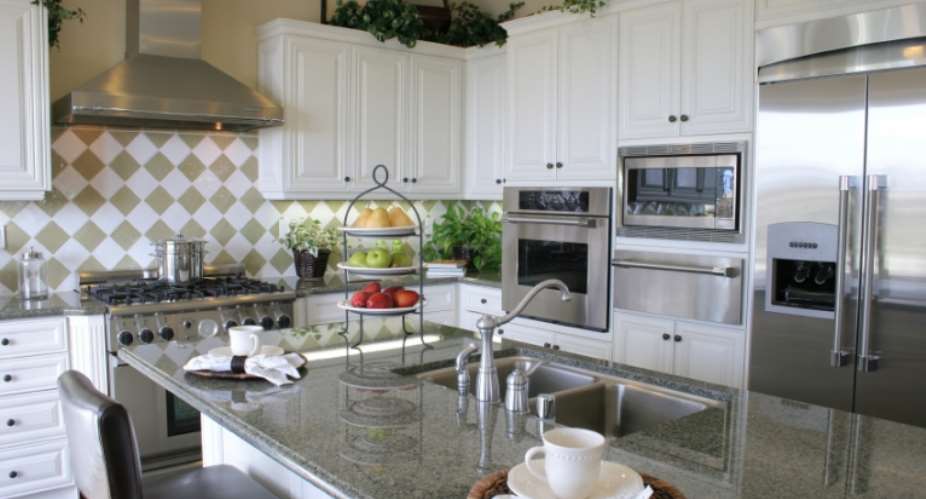Aside from home heating and cooling, your kitchen is most likely the greatest energy user in the house. Yep, think of microwaves, ovens, the refrigerator, electric burner, blenders, dispensers, cookers, light, and many others. I don’t presume that other parts of the house have the biggest energy user compared to the kitchen. This is largely as a result of the home appliances in the kitchen. The refrigerator and freezer use electricity to keep food cold, while other smaller appliances also use either electricity or gas. In some homes, they use hot water in the sink and the dishwasher. Heating food and water take a great deal of energy in the kitchen. We will, therefore, be looking at a little bit of how we can effectively save energy-cedi in the kitchen, because the higher the energy, the higher the bills.
How can you best conserve energy in the kitchen? We will look at a few;
Buy energy efficient appliances
The kitchen appliances you use for cooking account for 49% of your household appliances' energy consumption. There are numerous ways to save energy in the kitchen. For example, with refrigerators, high-efficiency Energy Star refrigerators can significantly reduce energy usage in your home. Another example is how you use your dishwashers; you can run the kitchen-washer only when it is full. If your dishwasher has an energy saving cycle, you can use it most of the time, if not you can stop the machine and open it during the drying cycle. In many homes, the drying cycle of the dishwasher utilizes heat, which also adds to the energy.
Utilize another source of heat like the oven wisely
Endeavor to keep your checking to a minimum degree. The conventional oven is a major fuel waster. Each time you open the energy door, the temperature drops from 25 to 50 degrees, which implies that more energy will be required. Most recipes require preheating the oven and this is a vital advance. If you are preheating the oven, watch to make sure that you are preheating the oven as soon as the oven is ready. You should also remember to turn the oven off when you have finished using it. Keeping your oven set on low heat to keep your food warm would still be wasting energy; instead, you could think of a better choice like keeping the food in the refrigerator to warm it later in the microwave.
Use appliance with less energy consumption
Of course, we use microwaves often to warm almost every food we have either from the refrigerator or from the popular street vendor. At least, most microwaves tend to use a significantly smaller amount of energy when heating food than the conventional ovens we have at home. Other small appliances like the grinder, juice mixer use less energy than ovens. You can think of a slow cooker which utilizes less energy for the whole day compared to 2 hours used by the oven. You can also think of replacing all of the incandescent and fluorescent bulbs with LED and CFL lighting. These bulbs are a more efficient alternative in your kitchen and will significantly cut down on costs. Pressure cookers are another energy efficient option. With a pressure cooker, you can cook pounds of meat in half the normal cooking time required.
Turn off all appliances that are not in use
This is very important. When leaving the kitchen, make sure that all appliances are turned off not only to preserve energy but also to protect the entire house from fires and other alarms. With the freezers, when you realize all food items are frozen to the core, you could turn off the freezer for the night and turn it back on when you wake up in the morning. In summary, energy can be conserved at home, especially the kitchen. This will go a long way to save money and time. So practice less energy usage at home for a better lifestyle.
Image source: breakingenergy.com






 Meta releases new version of conversational AI across its platforms
Meta releases new version of conversational AI across its platforms
 Cape Town named Africa’s Best Airport 2024 by Skytrax
Cape Town named Africa’s Best Airport 2024 by Skytrax
 Bono East: Four injured after hearse transporting corpse crashes into a truck
Bono East: Four injured after hearse transporting corpse crashes into a truck
 ‘Be courageous, find your voice to defend our democracy’ — Sam Jonah urges journ...
‘Be courageous, find your voice to defend our democracy’ — Sam Jonah urges journ...
 Exodus of doctors, nurses and teachers have worsened because of unserious Akufo-...
Exodus of doctors, nurses and teachers have worsened because of unserious Akufo-...
 2024 election: Avoid insults, cutting down people in search of power – National ...
2024 election: Avoid insults, cutting down people in search of power – National ...
 ‘You passed through the back door but congratulations’ — Atubiga on Prof Jane Na...
‘You passed through the back door but congratulations’ — Atubiga on Prof Jane Na...
 Government’s $21.1 billion added to the stock of public debt has been spent judi...
Government’s $21.1 billion added to the stock of public debt has been spent judi...
 Akufo-Addo will soon relocate Mahama’s Ridge Hospital to Kumasi for recommission...
Akufo-Addo will soon relocate Mahama’s Ridge Hospital to Kumasi for recommission...
 We must not compromise on our defence of national interest; this is the time to ...
We must not compromise on our defence of national interest; this is the time to ...
